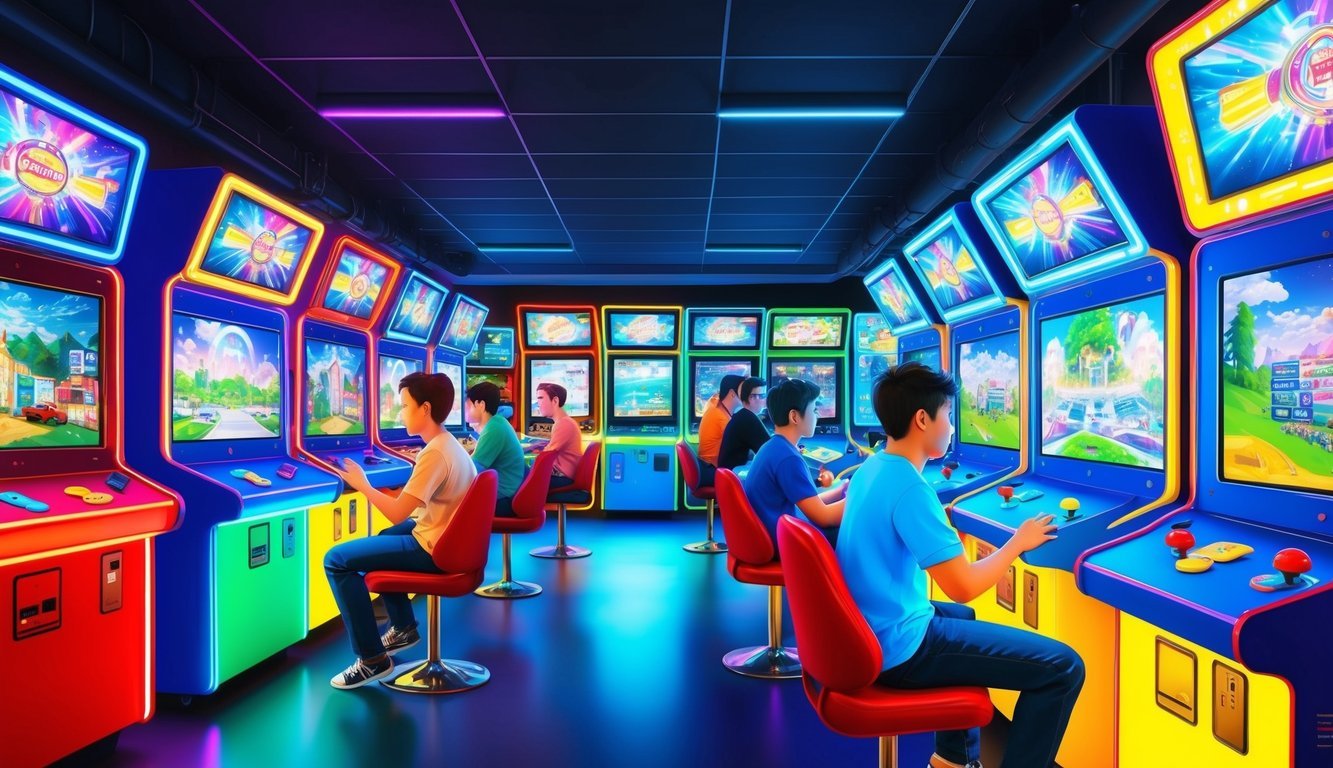Video games have come a long way since the days of Pong and Space Invaders.
Today, they’re a massive global industry and a beloved form of entertainment for millions.
From epic adventures to mind-bending puzzles, there’s something for everyone in the world of gaming.
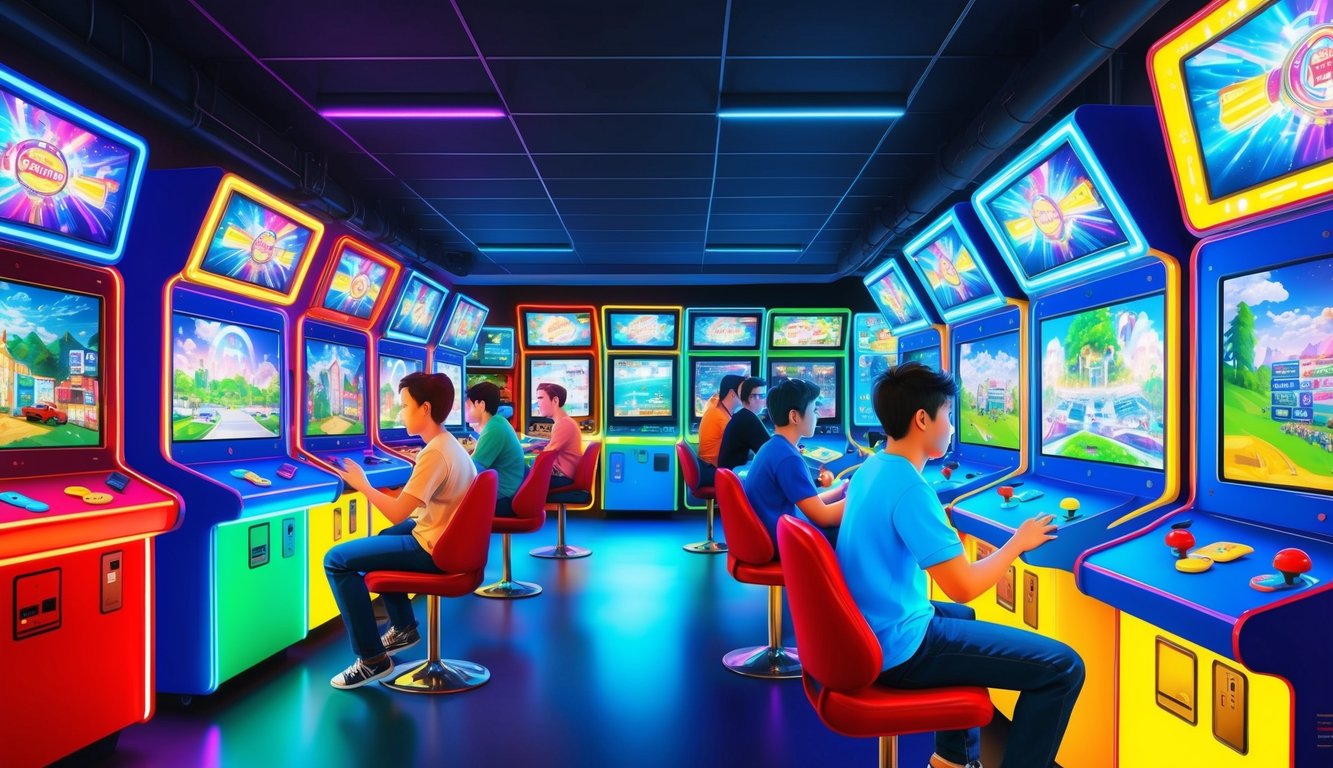
The best video games offer immersive experiences that can transport you to fantastical worlds, challenge your skills, and even tell compelling stories. Whether you’re into action-packed shooters, sprawling RPGs, or quirky indie titles, the variety of games available is staggering.
As technology advances, so do the possibilities in gaming.
Virtual reality, cloud gaming, and increasingly realistic graphics are pushing the boundaries of what’s possible.
With new releases and updates constantly hitting the market, there’s always something fresh to explore in the ever-evolving landscape of video games.
The Evolution of Video Games
Video games have come a long way since their humble beginnings.
From simple pixelated graphics to immersive 3D worlds, the industry has undergone massive transformations.
Let’s explore some key phases in gaming history.
The Golden Age
Remember those classic arcade cabinets? The late 70s and early 80s saw an explosion of coin-operated games.
You’d pump quarters into machines to play Space Invaders, Pac-Man, and Donkey Kong.
Home consoles like the Atari 2600 brought arcade-style gaming to your living room.
But it wasn’t all smooth sailing – the market crashed in 1983 due to oversaturation.
Nintendo revived the industry with the NES in 1985. Super Mario Bros. became a household name, and games started featuring more complex stories and gameplay.
Rise of 3D World and Home Consoles
The 90s ushered in a new era of 3D graphics.
You could now explore vast worlds in games like Super Mario 64 and Final Fantasy VII.
Sony’s PlayStation and Nintendo 64 battled for dominance, offering increasingly sophisticated experiences.
Metroidvania games flourished, combining exploration and power-ups in intricate 2D worlds.
PC gaming also took off, with first-person shooters like Doom and Quake pushing hardware limits.
Strategy games and RPGs found a comfortable home on computers.
Online Gaming and MMO Explosion
The internet changed everything.
Suddenly, you could play with friends across the globe.
Competitive gaming took off with titles like Counter-Strike and Starcraft.
Massively Multiplayer Online games (MMOs) created persistent worlds where thousands played together.
World of Warcraft became a cultural phenomenon, dominating the genre for years.
Console online networks emerged too.
Xbox Live and PlayStation Network let you challenge players worldwide from your couch.
Today, online features are a standard expectation in most games.
Major Game Consoles and Platforms
The gaming landscape offers diverse options for players, from powerful home consoles to portable devices and high-performance PCs.
Each platform brings unique features and experiences to suit different gaming preferences.
Console Wars: Sony vs. Microsoft vs. Nintendo
Sony’s PS5, Microsoft’s Xbox Series X|S, and Nintendo Switch dominate the console market.
The PS5 boasts impressive graphics and exclusive titles like God of War and Spider-Man.
You’ll love its DualSense controller with haptic feedback and adaptive triggers.
Xbox Series X|S focuses on power and value.
Game Pass offers a huge library of games for a monthly fee.
You can play Xbox exclusives like Halo and Forza on day one.
Nintendo Switch stands out with its hybrid design.
You can play on your TV or take it on the go.
It’s perfect for family-friendly games and Nintendo classics like Mario and Zelda.
The PC Gaming Scene
PC gaming gives you ultimate flexibility and power.
You can build a custom rig or buy a pre-made system.
Steam, Epic Games Store, and GOG offer vast game libraries.
PC games often have better graphics and mod support.
You’ll enjoy strategy games, MMOs, and competitive shooters.
Keyboard and mouse controls give you precision in many genres.
VR gaming is more accessible on PC.
Platforms like SteamVR and Oculus let you dive into immersive worlds.
PC gaming can be pricey upfront but often has cheaper games and free online play.
Handheld Gaming Evolution
Handheld gaming has come a long way since the Game Boy.
Nintendo Switch leads the pack with its versatility.
You can play AAA titles on the go or indie gems perfect for short sessions.
Steam Deck brings PC gaming to a handheld format.
It runs most Steam games and lets you tinker with settings like a desktop PC.
Mobile gaming on smartphones and tablets is huge.
You’ll find casual puzzle games, competitive MOBAs, and even console-quality ports.
Cloud gaming services like Xbox Cloud Gaming and GeForce Now let you stream high-end games to mobile devices.
Video Game Genres and Gameplay Mechanics
Video games offer diverse experiences through varied genres and mechanics.
From classic platformers to immersive RPGs, each type of game presents unique challenges and storytelling opportunities.
From Platformers to Puzzles
Remember jumping from platform to platform in Super Mario Bros? That’s the essence of platformer games.
You control a character navigating through obstacles, often collecting items along the way.
Puzzle games, on the other hand, challenge your brain.
Think Tetris or Portal – you’re solving problems using logic and spatial reasoning.
In platformers, timing is key.
You’ll need quick reflexes to avoid enemies and make precise jumps.
Puzzle games often let you take your time, figuring out the solution at your own pace.
Some games blend these genres.
Braid, for example, combines platforming with mind-bending time manipulation puzzles.
It’s a perfect mix of action and brainpower.
The Thrill of Racing Games and Simulations
Ever dreamed of zooming down a track at breakneck speeds? Racing games put you in the driver’s seat.
From arcade-style fun like Mario Kart to realistic sims like Forza, there’s a racing game for every taste.
In arcade racers, you’ll find power-ups and unrealistic physics.
It’s all about the fun factor.
Simulation games, however, aim for realism.
You’ll need to master cornering techniques and manage tire wear.
Some popular racing titles include:
- Gran Turismo
- Need for Speed
- F1 series
These games often feature multiplayer modes, letting you compete against friends or strangers online.
Role-Playing Games and Storytelling
RPGs are all about immersion and character development.
You’ll create a character, embark on quests, and watch your hero grow stronger over time.
JRPGs (Japanese RPGs) like Final Fantasy often feature turn-based combat and elaborate storytelling.
Western RPGs like The Witcher series typically offer more open-ended gameplay.
You’ll make choices that affect the story and world around you.
Key elements of RPGs include:
- Character customization
- Skill trees
- Inventory management
- Dialogue choices
These games can offer hundreds of hours of gameplay, with rich worlds to explore and complex stories to uncover.
The Surge of Battle Royale Games
Battle Royale games have taken the gaming world by storm.
Fortnite, PUBG, and Apex Legends are prime examples.
In these games, you’re dropped into a shrinking map with dozens of other players.
Your goal? Be the last one standing.
You’ll need to scavenge for weapons and resources while staying inside the safe zone.
It’s a tense, exciting experience that keeps you on your toes.
Battle Royale games often feature:
- Customizable characters
- Season passes with new content
- Regular updates and events
- Cross-platform play
These games are designed to be highly replayable.
No two matches are ever the same, keeping you coming back for more.
Iconic Video Games and Franchises
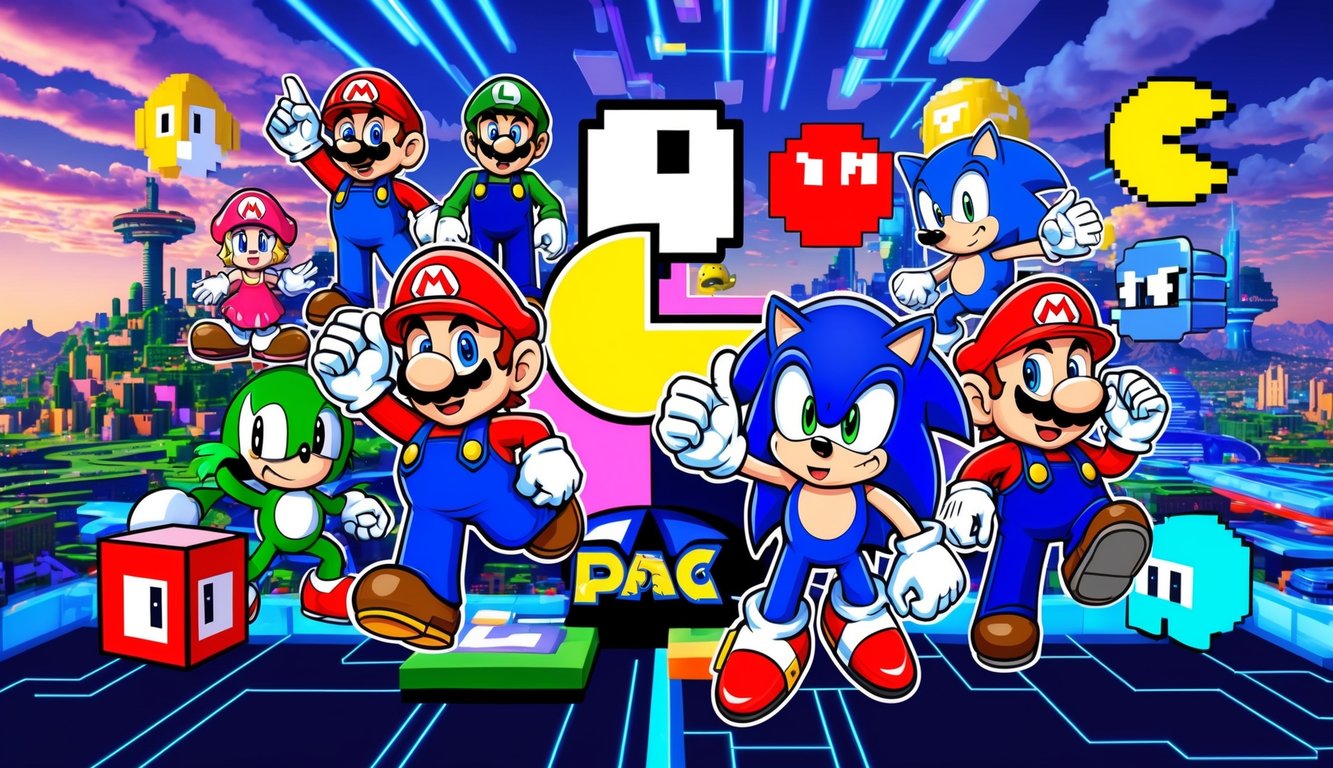
Video game franchises have shaped the industry and captivated players for decades.
From sprawling fantasy worlds to innovative indie gems, these iconic series have left an indelible mark on gaming culture.
Adventures in Hyrule and The Mushroom Kingdom
You’ve probably explored Hyrule’s vast landscapes or jumped through colorful pipes in the Mushroom Kingdom.
The Legend of Zelda and Super Mario Bros. are Nintendo’s crown jewels.
Breath of the Wild redefined open-world adventure, letting you tackle Hyrule’s mysteries in any order.
Its physics engine and environmental puzzles wowed critics and players alike.
Mario’s latest outing, Super Mario Odyssey, brought the plumber’s signature platforming to new heights.
With Cappy, you could possess objects and enemies, adding a fresh twist to the formula.
Animal Crossing: New Horizons became a cultural phenomenon during the pandemic.
It offered a cozy escape where you could build your dream island paradise.
The Phenomenon of Final Fantasy
Final Fantasy has been a JRPG powerhouse since 1987.
Each entry brings a new world, characters, and battle system to sink your teeth into.
Final Fantasy VII’s 1997 release was a watershed moment, introducing many Western players to the depth and emotion JRPGs could offer.
Final Fantasy XIV, the MMO entry, had a rocky start but has since become one of the most beloved games in the franchise.
Its Shadowbringers expansion is widely considered one of the best MMORPG stories ever told.
The series’ music, composed by Nobuo Uematsu and others, is iconic in its own right.
You’ve probably hummed the victory fanfare even if you’ve never played a Final Fantasy game.
Innovative Indies: Small Games, Big Impact
Indie games have revolutionized the industry, proving that small teams can create unforgettable experiences. Hollow Knight, a Metroidvania masterpiece, dropped you into a haunting underground world of insects.
Its tight controls, challenging bosses, and atmospheric score made it an instant classic.
Stardew Valley, created by a single developer, captured hearts with its charming take on farming sims.
You could form relationships, explore caves, and uncover the town’s secrets at your own pace.
Undertale subverted RPG tropes with its unique combat system and fourth-wall-breaking humor.
Its soundtrack became a cultural touchstone, with songs like “Megalovania” gaining millions of listens outside the game.
The Art of Video Game Storytelling
Video games have evolved into a powerful storytelling medium.
They transport you into immersive worlds and let you shape narratives through your choices and actions.
Narratives and Worlds to Get Lost In
You’ll find yourself captivated by richly detailed game worlds that bring stories to life.
BioShock plunges you into the haunting underwater city of Rapture, where you uncover its dark secrets.
The eerie town of Silent Hill pulls you into its fog-shrouded streets, blurring the lines between reality and nightmare.
Some games tell stories without words.
Journey takes you on a wordless pilgrimage across vast deserts and snowy peaks.
The breathtaking landscapes, emotive music, and subtle interactions with other players create a uniquely poetic narrative experience.
Characters and Plot Twists
Compelling characters and shocking twists keep you hooked on game stories.
In Dead Space, you’ll root for engineer Isaac Clarke as he fights for survival against grotesque alien monsters.
The game’s claustrophobic spaceship setting ramps up the tension.
Plot twists can redefine your entire experience.
BioShock’s iconic “Would you kindly?” reveal forces you to question your agency as a player.
Meanwhile, Silent Hill 2’s multiple endings adapt to your choices, leading to dramatically different outcomes.
Some games, like indie hit Undertale, subvert your expectations of typical video game narratives.
Your actions have lasting consequences, and showing mercy can be more impactful than violence.
Graphic Evolution and Game Design
Video game graphics have come a long way since the early days of pixelated sprites.
The leaps in technology have transformed game visuals and revolutionized how games are designed and experienced.
The Leap to 3D and Realism
Remember when games were flat 2D worlds? That all changed with the jump to 3D.
Suddenly, you could explore vast 3D environments like never before.
Games like “Super Mario 64” and “Tomb Raider” let you roam freely in three dimensions.
As hardware improved, so did the level of detail.
Textures became sharper, character models more lifelike.
You started seeing realistic facial expressions and fluid animations.
Meanwhile, games like “BioShock” stunned players with its immersive underwater city of Rapture.
Lighting and shadow effects added depth and atmosphere.
Water reflections, dynamic weather, and particle systems made game worlds feel alive and reactive to your actions.
The Impact of Game Engines
Game engines revolutionized how developers create games.
Tools like Unreal Engine gave even small teams the power to craft impressive 3D worlds.
These engines provide ready-made systems for graphics, physics, and AI.
You’ve probably played games made with Unreal without realizing it.
From “Fortnite” to “Mass Effect”, it’s behind many popular titles.
These engines speed up development and let designers focus on crafting unique experiences.
As engines improve, so do the visuals in your games.
Real-time ray tracing creates lifelike lighting and reflections.
Meanwhile, procedural generation builds vast, detailed worlds for you to explore.
The line between game graphics and reality continues to blur.
The Influence of Gaming Culture
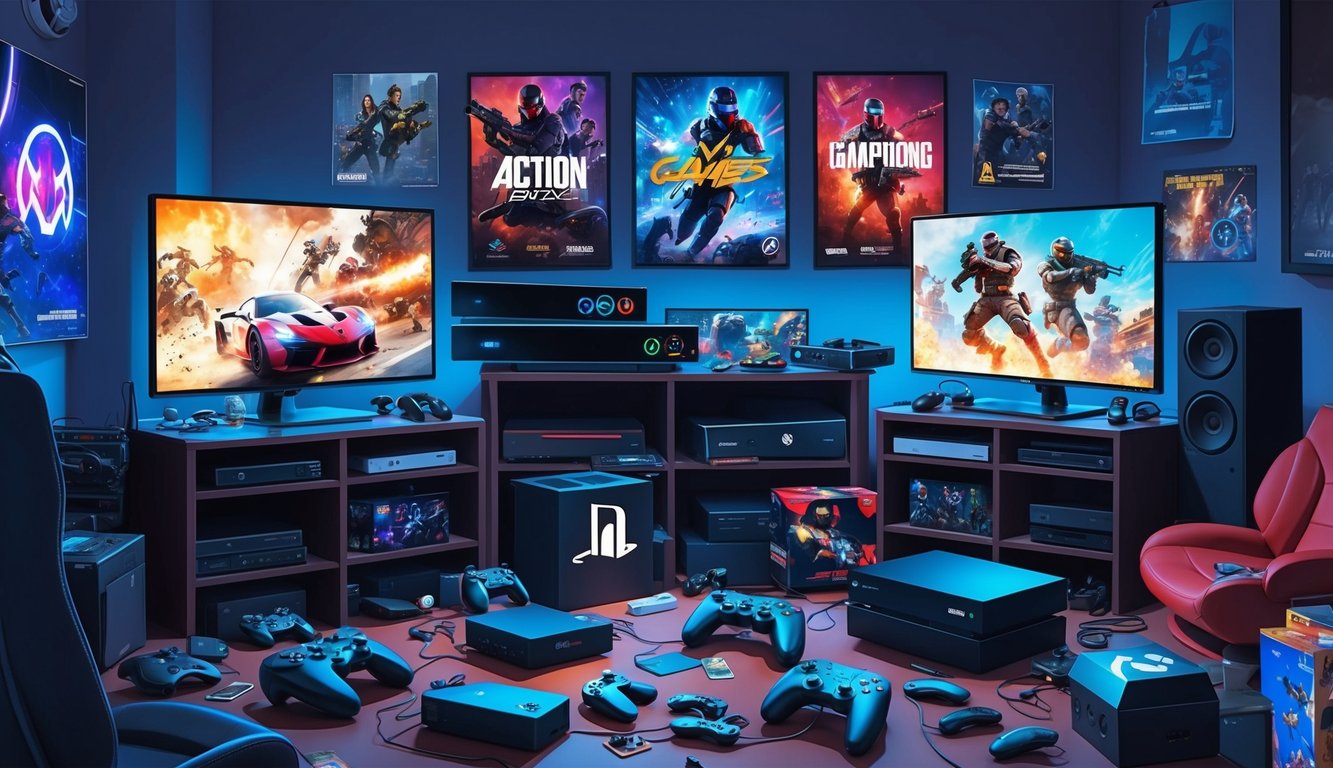
Gaming culture has permeated society in profound ways.
Its impact extends far beyond just playing games, shaping communities and creating new forms of entertainment and careers.
Gaming Communities and Esports
You’ve probably noticed how games like World of Warcraft and Dota 2 have fostered tight-knit communities.
These games bring people together, forming friendships across borders and cultures.
Esports have exploded in popularity.
You can now watch professional gamers compete for millions in prize money.
Tournaments fill stadiums and draw massive online audiences.
Gaming communities often develop their own lingo and inside jokes.
You might find yourself using terms like “noob” or “pwned” in everyday conversations.
Streamers and Content Creation
Streaming has become a major part of gaming culture.
You can watch your favorite gamers play live on platforms like Twitch or YouTube.
Many streamers have turned their passion into full-time careers.
They entertain millions of viewers with their gameplay, commentary, and personalities.
You’ll find a wide variety of content creators in the gaming world.
Some focus on skill and strategy, while others aim for humor and entertainment.
Gaming videos aren’t just about watching others play.
You can find tutorials, reviews, and even gaming news channels to keep you informed about the latest trends.
Game Development and Creators

Game creation has evolved dramatically, with powerful tools now accessible to both novices and pros.
You can dive into game-making using user-friendly software or robust engines, depending on your skills and goals.
Behind the Scenes with Developers
Ever wonder how your favorite games come to life? It’s a complex process involving diverse talents.
Artists craft stunning visuals while programmers bring worlds to life with code.
Sound designers create immersive audio landscapes.
You’ll find teams using engines like Unity or Unreal to streamline development.
These tools let creators focus on gameplay and storytelling.
Meanwhile, indie devs often opt for more accessible options like GameMaker or Godot.
Testing is crucial.
Developers spend countless hours fine-tuning mechanics and squashing bugs.
It’s not uncommon for games to undergo major changes based on player feedback.
Visionary Minds in Gaming
Some creators leave an indelible mark on the industry.
Take Hideo Kojima, the mastermind behind Metal Gear Solid.
His cinematic storytelling and innovative gameplay mechanics have inspired countless others.
From Software, led by Hidetaka Miyazaki, revolutionized difficulty in games.
Their Dark Souls series created a new subgenre of challenging action RPGs.
These visionaries push boundaries, introducing fresh concepts that reshape gaming.
They’re not afraid to take risks, often blending genres or introducing unique narrative structures.
You’ll notice their influence across the industry, as other developers build upon their innovations.
Their games often become cultural touchstones, sparking discussions far beyond the gaming community.
Game Critique and Recognition
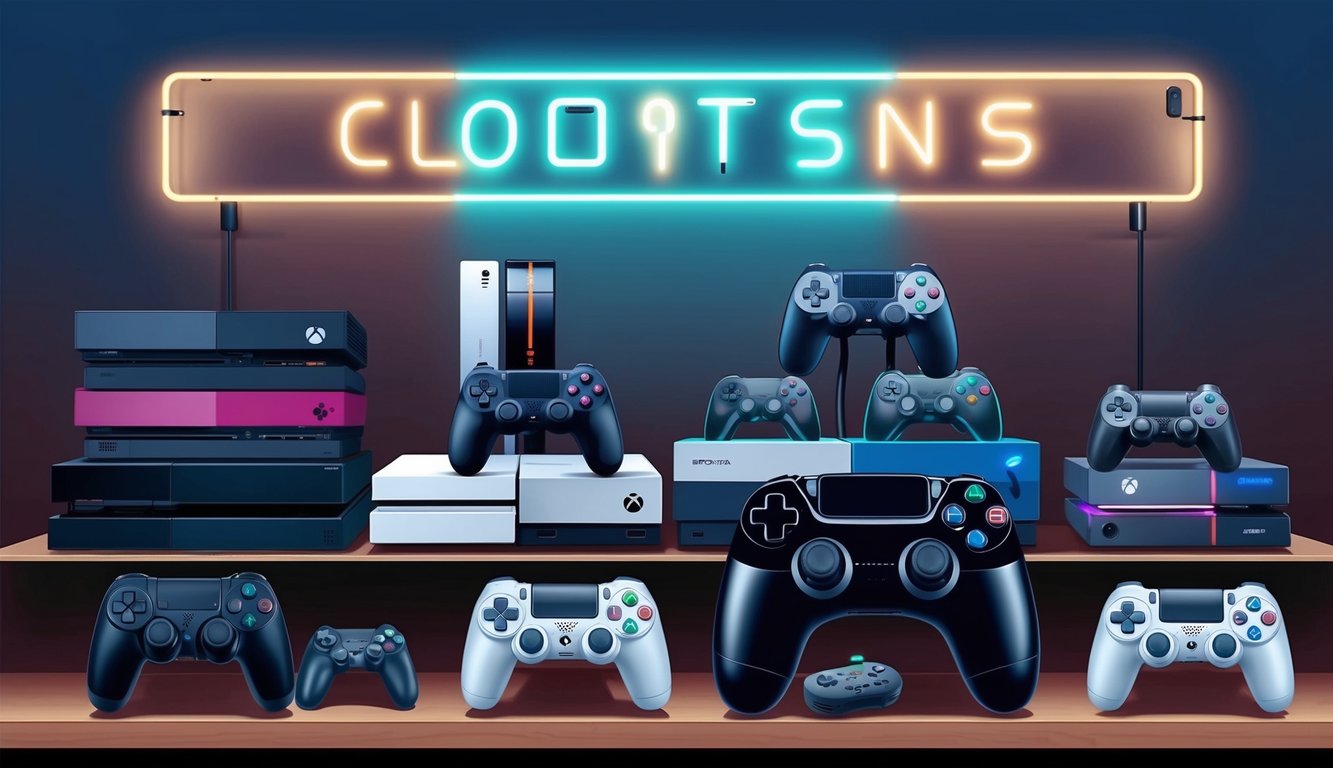
Video game reviews and awards play a huge role in shaping public opinion and recognizing excellence in the industry.
They guide purchasing decisions and highlight standout titles that push the medium forward.
Review Platforms and What They Mean
Ever wondered what those review scores actually mean? Sites like IGN and Metacritic use different scales, so it’s good to know how they work.
IGN rates games out of 10, while Metacritic averages scores from multiple critics for a “Metascore” out of 100.
A 9/10 or 90+ Metascore usually means you’re looking at a potential game of the year.
Anything 8+ or 80+ is typically considered great.
Meanwhile, 7/10 or 70+ tends to mean “good but flawed.”
Don’t just focus on the numbers though.
Reading the full reviews gives you way more insight into whether a game will click with you personally.
Awards and Accolades
The Game Awards is like the Oscars of gaming.
Winning Game of the Year there is a huge deal.
But there are tons of other prestigious awards too, like BAFTA’s gaming awards and the D.I.C.E. Awards.
“Best Games of All Time” lists pop up everywhere.
They’re fun to debate, but super subjective.
Still, games that show up on multiple lists are probably worth checking out.
Industry recognition can boost a game’s profile big time.
It might introduce you to hidden gems you’d have otherwise missed.
Gaming and Society

Video games have become deeply intertwined with modern society, influencing education and playing a crucial role during global events.
They’ve shaped how we learn and connect with others in unexpected ways.
Video Games and Education
Educational games are changing how you learn.
These interactive experiences make complex subjects more engaging and accessible.
You might tackle math problems as part of an adventure game or learn history by exploring virtual ancient civilizations.
Studies show that game-based learning can improve your problem-solving skills and boost your motivation to study.
Many schools now use video games as teaching tools.
You’ll find them in classrooms, helping students grasp difficult concepts through hands-on experiences.
Some games even teach coding basics, preparing you for future tech careers.
Impacts of Gaming during the COVID-19 Pandemic
During lockdowns, video games became your social lifeline.
You turned to online multiplayer games to stay connected with friends and family when physical meetups weren’t possible.
Gaming provided a much-needed escape and a way to maintain your mental health during stressful times.
The pandemic saw a huge surge in gaming.
You probably noticed more people playing, with four out of five consumers in the US trying video games during this period.
Games offered a sense of normalcy and community when the outside world felt chaotic.
Online gaming spaces became virtual hangouts.
You could chat, laugh, and share experiences with others, helping combat feelings of isolation.
For many, gaming became an essential coping mechanism and a source of joy in uncertain times.
The Future of Gaming
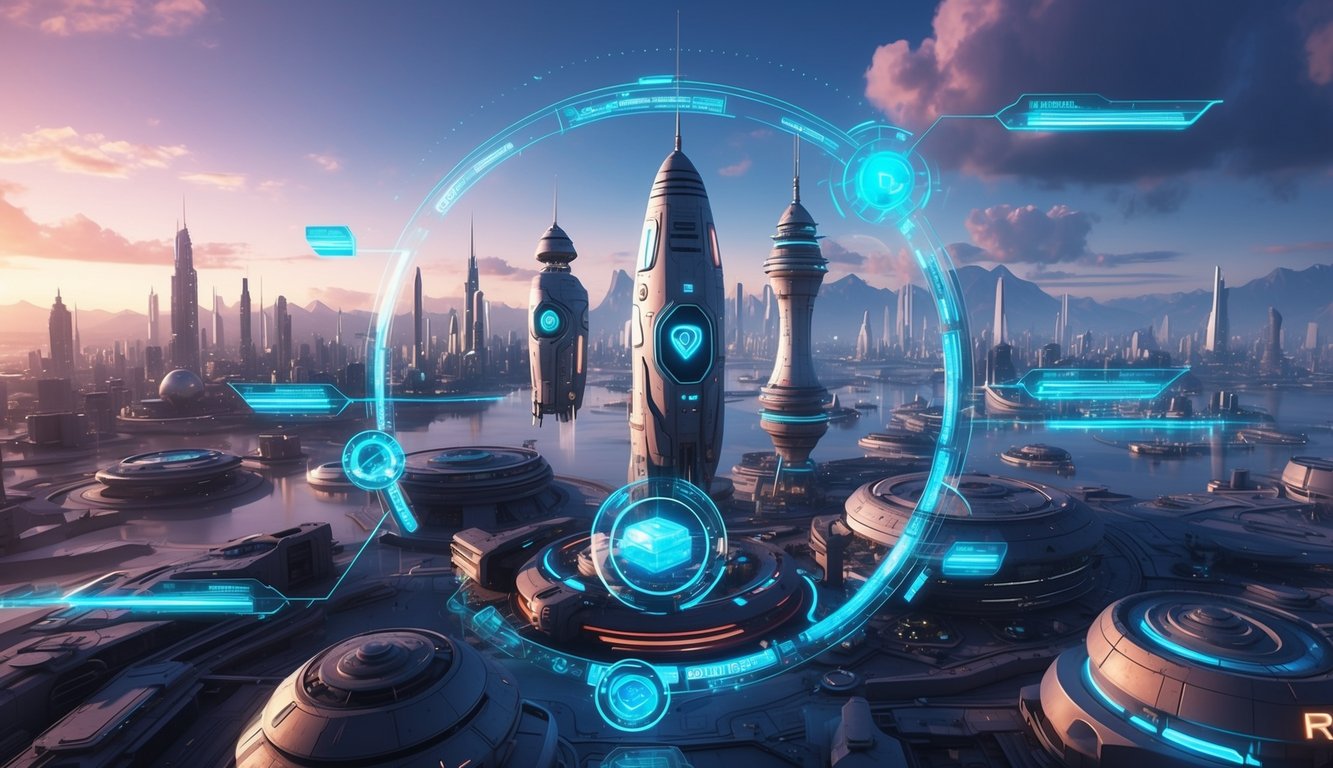
Gaming is set to evolve rapidly in the coming years.
New releases and cutting-edge technologies will reshape how you play and experience video games.
Upcoming Game Releases and Predictions
Get ready for some exciting titles heading your way! “Hades 2” is on the horizon, promising more roguelike action in the Greek underworld.
You’ll battle new gods and uncover fresh mythology in this highly anticipated sequel.
Looking further ahead, rumors are swirling about “Grand Theft Auto VI.” While details are scarce, you can expect a massive open world with even more interactive elements.
Imagine cruising around in hyper-realistic vehicles, pulling off elaborate heists, and engaging with a living, breathing city like never before.
Other games to watch out for include:
- “The Elder Scrolls VI”
- “Starfield”
- “Fable 4”
These titles aim to push the boundaries of immersion and storytelling in their respective genres.
Emerging Technologies in Gaming
Virtual reality (VR) and augmented reality (AR) are set to transform your gaming experiences.
You’ll soon be able to step inside your favorite game worlds.
You can interact with environments and characters in incredibly lifelike ways.
Cloud gaming services will continue to improve, allowing you to play high-end games on almost any device.
No more worrying about expensive hardware upgrades – just stream your games instantly.
AI is also making waves in gaming.
You’ll encounter more intelligent NPCs, dynamically generated content, and personalized game experiences tailored to your playstyle.
Haptic feedback technology is advancing too.
Get ready to feel every bump, explosion, and impact as you play.
It adds a whole new dimension to your gaming sessions.

